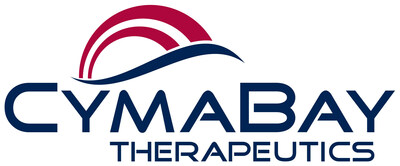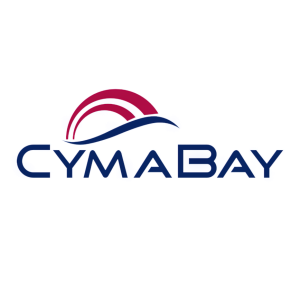CymaBay Announces an Oral Presentation of Seladelpar Phase 3 Pivotal Results in Primary Biliary Cholangitis at the Late Breaker Session of the Liver Meeting®
Seladelpar achieved a highly significant rate of alkaline phosphatase normalization and reductions in patient-reported pruritus vs. placebo
The results will support the submission of global market authorization applications
RESPONSE was a double-blind, placebo-controlled, global study of one-year duration that randomized 193 PBC patients in a 2:1 ratio to seladelpar 10 mg or placebo, once daily. Eligible patients had an inadequate response or intolerance to ursodeoxycholic acid (UDCA) with serum alkaline phosphatase (ALP) ≥ 1.67× the upper limit of normal (ULN) after at least 12 months of treatment. The primary endpoint was a composite of ALP and total bilirubin previously accepted by the
The key secondary endpoint of ALP normalization occurred in
The study also measured change in patient-reported pruritus (itching), one of the most challenging symptoms experienced by patients with PBC, as a key secondary endpoint using the daily numerical rating scale (NRS; 0-10). The pruritus endpoint was met at Month 6 among patients with baseline NRS > 4 reporting decreases of 3.2 points with seladelpar (n=65) vs. 1.7 for patients on placebo (n=20; p<0.005). Notably, these improvements were sustained through Month 12 (p<0.005). Approximately
"Among the most encouraging findings in this study are the rapid, sustained, and durable improvements we're seeing with seladelpar in treating cholestasis and liver injury, as well as its significant impact on itch for patients over the 12 months of the study," said Gideon Hirschfield, M.D., Lily and Terry Horner Chair in Autoimmune Liver Disease Research, Toronto Centre for Liver Disease. "The results further support seladelpar's recently revised Breakthrough Therapy Designation, which was expanded to include pruritus and compensated cirrhosis. The potency, efficacy biochemically, and significant anti-pruritus effects, alongside the safety profile of seladelpar, really does reinforce its potential to change the treatment landscape in PBC."
There were no treatment-related serious adverse events in the study. Discontinuation due to adverse events occurred in
These results (Abstract #5002) will be shared in a presentation titled "Efficacy and Safety of Seladelpar in Patients with Primary Biliary Cholangitis in the RESPONSE Trial: A Phase 3 International, Randomized, Placebo-Controlled Study," on November 13, 2023, as part of the late-breaking oral presentation at 2:30 PM EST. The results will be presented by Dr. Hirschfield on behalf of the RESPONSE Study Investigators.
"This is an incredibly proud moment for our company and the result of a long and unwavering commitment to finding solutions for people living with PBC who have had few options to address the most distressing aspects of this disease," said Sujal Shah, CEO of CymaBay. "We are humbled to have the opportunity to share these findings at The Liver Meeting® with colleagues, researchers, and most importantly, those suffering from PBC. As we look toward moving into the regulatory filing process, the continued support from patients and their caregivers is ultimately what drives our efforts."
To learn more and to view the presentation, please visit the CymaBay website.
About PBC
PBC is a rare, chronic inflammatory liver disease primarily affecting women (1 in 1,000 women over the age of 40 or about 130,000 total people in the US). PBC is characterized by impaired bile flow (known as cholestasis) and the accumulation of toxic bile acids in the liver, leading to inflammation and destruction of the bile ducts within the liver and causing increased levels of ALP, ALT, and GGT, enzymes found primarily in the liver, as well as total bilirubin. The most common early symptoms of PBC are pruritus (itching) and fatigue, which can be debilitating for some patients. Progression of PBC is associated with an increased risk of liver-related mortality.
About Seladelpar
Seladelpar, an investigational treatment for people with PBC, is a first-in-class oral, selective peroxisome proliferator-activated receptor delta (PPARδ) agonist, or delpar, shown to regulate critical metabolic and liver disease pathways in indications with high unmet medical need. Preclinical and clinical data support its ability to regulate genes involved in bile acid synthesis, inflammation, fibrosis and lipid metabolism, storage, and transport.
About CymaBay
CymaBay Therapeutics, Inc. is a clinical-stage biopharmaceutical company focused on improving the lives of people with liver and other chronic diseases that have high unmet medical need through a pipeline of innovative therapies. Our deep understanding of the underlying mechanisms of liver inflammation and fibrosis, and the unique targets that play a role in their progression, have helped us receive breakthrough therapy designation (
Cautionary Statements
Any statements made in this press release regarding the potential for seladelpar to treat PBC and potentially improve clinical symptoms or outcomes of the disease, the potential benefits to patients and the future filing and commercialization plans of CymaBay are forward-looking statements that are subject to risks and uncertainties. Actual results and the timing of events regarding the further development of seladelpar could differ materially from those anticipated in such forward-looking statements as a result of risks and uncertainties, which include, without limitation, risks related to: the success, cost and timing of any of CymaBay's product development activities, including clinical trials; and effects observed in trials to date that may not be repeated in the future. Additional risks relating to CymaBay are contained in CymaBay's filings with the Securities and Exchange Commission, including without limitation its most recent Annual Report on Form 10-K, its Quarterly Reports on Form 10-Q and other documents subsequently filed with or furnished to the Securities and Exchange Commission. CymaBay disclaims any obligation to update these forward-looking statements except as required by law.
For additional information about CymaBay visit www.cymabay.com.
Public Relations Contact:
Theresa Dolge
Evoke Kyne
(609) 915-2156
Theresa.Dolge@evokegroup.com
Investor Relations Contact:
PJ Kelleher
LifeSci Advisors, LLC
(617) 430-7579
pkelleher@LifeSciAdvisors.com
![]() View original content to download multimedia:https://www.prnewswire.com/news-releases/cymabay-announces-an-oral-presentation-of-seladelpar-phase-3-pivotal-results-in-primary-biliary-cholangitis-at-the-late-breaker-session-of-the-liver-meeting-301985498.html
View original content to download multimedia:https://www.prnewswire.com/news-releases/cymabay-announces-an-oral-presentation-of-seladelpar-phase-3-pivotal-results-in-primary-biliary-cholangitis-at-the-late-breaker-session-of-the-liver-meeting-301985498.html
SOURCE CymaBay Therapeutics








